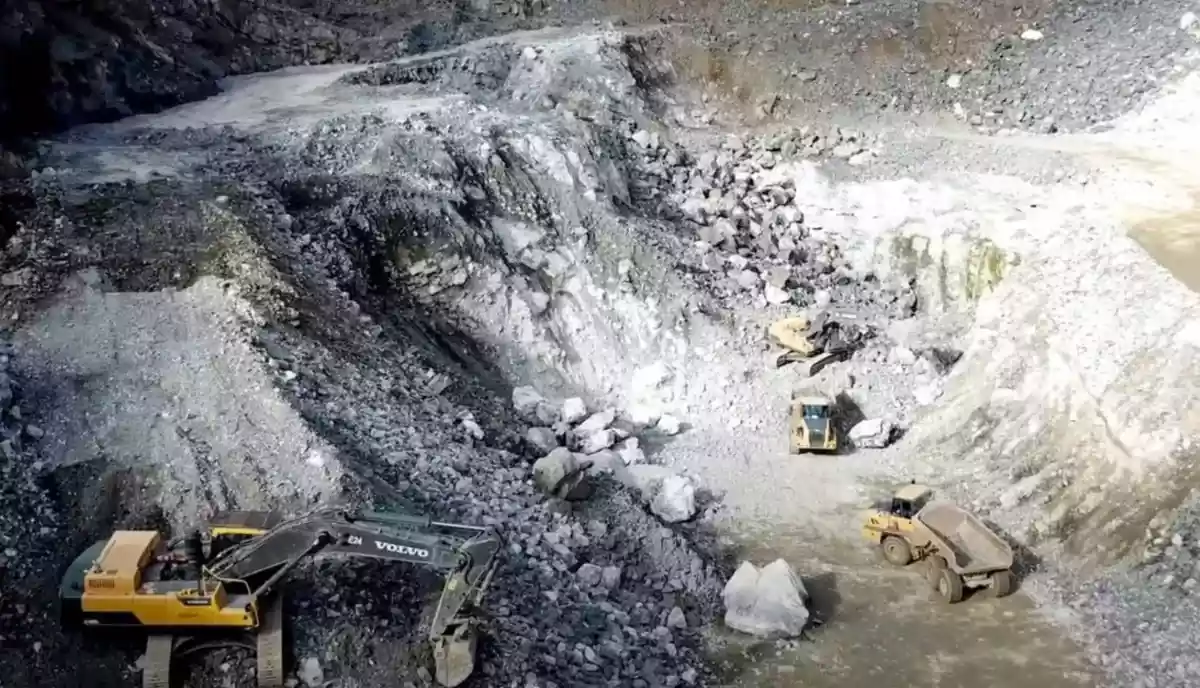
STATUTORY Instrument (SI) 05 was recently amended through the Base Minerals Export Control (Unbeneficiated Base Mineral Ores) (Amendment) Order, 2023 (No. 1) published in Statutory Instrument 57 of 2023 (hereafter SI 57).
Section 3(1) of SI 05 provides that no unbeneficiated base mineral ores shall be exported from Zimbabwe except under the written permit issued by the minister.
However, the order does not specify the degree of beneficiation, which is required before the export can escape the restriction imposed. Be that as it may, the issue of base mineral export permits is not something new.
The minister always has the discretion in terms of sections 3(b) and 4 of the Act to either issue or refuse to grant an export permit. However, unlike in the past, in terms of the new order the minister can only issue a permit to a prospective applicant on either of the following two grounds specified in section 3 of SI 05:
If the applicant produces compelling reasons showing that no such ore is capable of being beneficiated to any extent within Zimbabwe.
If the applicant produces satisfactory proof that he/she want to export a sample of unbeneficiated base mineral ore for assaying outside Zimbabwe since such assaying cannot be satisfactorily done locally, and that the quantity to be exported is necessary for that purpose.
Regarding lithium, the following addi tional requirements must be noted:
the exporter/applicant must be operating an Approved Processing Plant (APP) under a permit or, if not, has concurrently obtained a permit to operate an APP and a plan has been approved with a view to the plant being completed and fully operational within two years from the issuance of the export permit; and
- Mavhunga puts DeMbare into Chibuku quarterfinals
- Bulls to charge into Zimbabwe gold stocks
- Ndiraya concerned as goals dry up
- Letters: How solar power is transforming African farms
Keep Reading
the exporter must be an individual or a Partner who is a Zimbabwean citizen, or a corporate entity whose ownership is held exclusively by Zimbabwean citizens; and
the prior concurrence of the President regarding same must be obtained.
“Unbeneficiated lithium” is defined in section 2 of SI 05 as amended to means “any lithium in whatever form that has not undergone processing to the extent that, in the case of spodumene, the lithia content is 3% or above and, in the case of petalite and lepidolite, the lithia content is 2,5 % and above.”
The same section defined “unbeneficiated base mineral ore” to mean “any ore of whatever base mineral that has not undergone processing within Zimbabwe to any extent.”
Beneficiation entails the transformation of a mineral to a higher-value product, which can either be consumed locally or exported. The term “ore” in section 2 of SI 05 (i.e. "all forms of minerals or mineral aggregates which in the abstract are of economic value") appears to suggest that the order applies, without limitation, to all minerals in Zimbabwe.
However, “Base Minerals” are defined in SI 05 as amended to mean “all minerals and mineral substances (other than coal and coke), and includes all such slimes, concentrates, slags, tailings, and residues as are valuable and contain base minerals as hereinbefore defined, but does not include precious metals, precious stones, mineral oils, and natural gases.”
This definition specifically excludes precious metals, precious stones, mineral oils, natural gases, coal, and coke. It follows that SI 05 applies to all minerals except those specifically excluded as noted above.
In terms of section 2 of SI 05, “precious metals” means gold, silver, platinum and platinoid metals in an unmanufactured state, and includes all such slimes, concentrates, slags, tailings, residues, and amalgams as are valuable and contain such precious metals.
The same section defines “precious stones” to mean beryls, diamonds, emeralds, rubies, and any other substances which the President has declared to be precious stones in terms of the Mines and Minerals Act. It is crucial to note that the exclusion of certain minerals from the provision SI 05 does not mean that there is no restriction on the export of same. In terms of sections 43 and 44 of the Minerals Marketing Corporation of Zimbabwe (MMCZ) Act, export sales of minerals are subject to approval by the MMCZ, which acts as an export agent on behalf of the respective mining company.
Further, as aforementioned, gold must be sold to Fidelity Printers and Refiners Private Limited. Regarding oil and gas, the only company so far that is actively seeking mineral oil and gas in northern Zimbabwe is Invictus Energy Limited which have an agreement with the Government of Zimbabwe which regulates its operations.
It must also be noted that section 4 of SI 05 repealed Statutory Instrument 213 of 2022 which restricts the export of lithium-bearing ores and unbeneficiated lithium without however affecting the validity of anything done by the minister under it. This was necessary because lithium is covered under SI 05.
Penalties
It suffices to note that SI 05 is effective notwithstanding anything inconsistent with it. It follows that failure to comply with the order or conditions of any permit is a punishable offence.
The penalties are a fine not exceeding level 9 or twice the value of the base mineral involved whichever is the greater or imprisonment for a period not exceeding two years; or to both such fine and such imprisonment. Further, SI 57 added the following new offences in relation to lithium which attract the same penalties:
Selling by a lithium miner of lithium or lithium bearing ores to any individual or entity that does not own or control an APP, or for a purpose otherwise than processing of that lithium or those ores at an APP.
Selling by a lithium miner of lithium or lithium bearing ores to any individual or entity that does not hold a valid a Lithium Ore Purchase Licence.
Processing lithium or lithium bearing ores by a person who is not a lithium miner or owner or controller of an APP.
Storing lithium or lithium bearing ores at a place other than a mining location where the ores were mined, or at the site other than an APP.
Transporting lithium or lithium bearing ores without a lithium movement permit or in breach of the conditions of such a permit or to a place other than the site of an APP.
Contravening any term or condition of a licence or permit.
Conclusion
Whilst the order in SI 05 imposes stiff restrictions on the export of unbeneficiated base mineral ores, we submit that the minister must come up with regulations which detail the requisite supporting documentation, which is required when applying for an unbeneficiated base mineral ore export permit in terms of the new order. This will bring transparency and will also assist and guide the minister in the exercise of his discretion. Considering the foregoing, we conclude that notwithstanding the media’s ferocious claims that “raw base mineral export has been banned”, we argue that legally speaking, the existence of two instances under which the minister may issue an export permit for unbeneficiated base mineral ore means that there is no ban but a mere stiff restrictionon the export of same.
Whilst the granting or refusal of an export permit is an exercise of the minister’s discretion, we trust that the exercise of such discretion will only be in terms of the existing law which permit the export of unbeneficiated base mineral ores under a permit issued by the minister.
Kambo is recent law graduate from the University of Zimbabwe who has joined practice at a law firm in Harare. Mafongoya is an associate, notary public and conveyancer currently practising in Harare. She holds a LLB from Wits University and an LLM in International Trade, Investment and Business Law. These weekly New Perspectives articles, published in the Zimbabwe Independent, are coordinated by Lovemore Kadenge, an independent consultant, managing consultant of Zawale Consultants (Pvt) Ltd, past president of the Zimbabwe Economics Society and past president of the Chartered Governance & Accountancy Institute in Zimbabwe (CGI Zimbabwe). — [email protected] or mobile: +263 772 382 852






